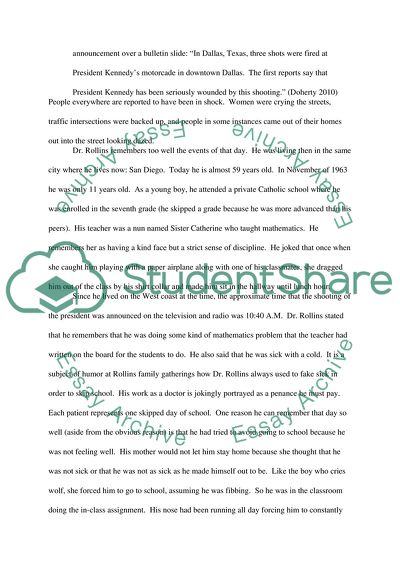Cite this document
(“The JFK Assassination Assignment Example | Topics and Well Written Essays - 2000 words”, n.d.)
The JFK Assassination Assignment Example | Topics and Well Written Essays - 2000 words. Retrieved from https://studentshare.org/history/1735571-living-history-assignment
The JFK Assassination Assignment Example | Topics and Well Written Essays - 2000 words. Retrieved from https://studentshare.org/history/1735571-living-history-assignment
(The JFK Assassination Assignment Example | Topics and Well Written Essays - 2000 Words)
The JFK Assassination Assignment Example | Topics and Well Written Essays - 2000 Words. https://studentshare.org/history/1735571-living-history-assignment.
The JFK Assassination Assignment Example | Topics and Well Written Essays - 2000 Words. https://studentshare.org/history/1735571-living-history-assignment.
“The JFK Assassination Assignment Example | Topics and Well Written Essays - 2000 Words”, n.d. https://studentshare.org/history/1735571-living-history-assignment.


